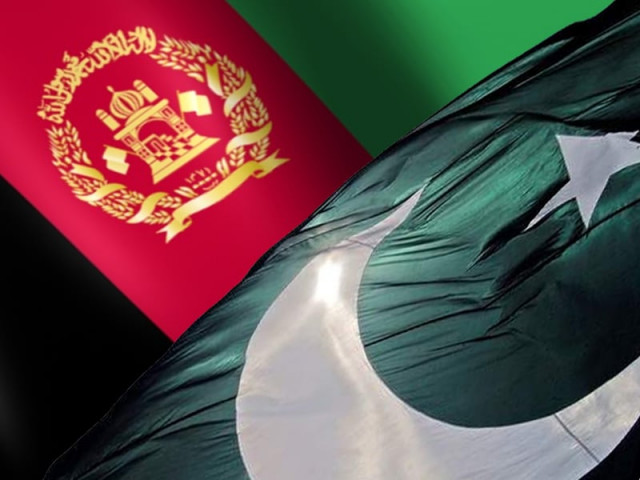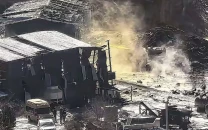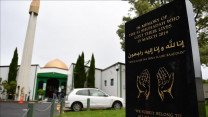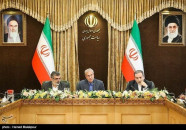Security talks
There need to be some frank discussions and tangible goodwill gestures on the ground.

Security talks
From the Pakistan side, the complaint still remains that the Tehreek-e-Taliban Pakistan (TTP) has been using bases inside Afghanistan to plot and launch attacks on Pakistani soil. It is held that the chief of the TTP has long been based in Afghanistan’s Kunar and Nuristan provinces. Pakistan also still complains about firing at its border posts from the Afghan side. Similarly, the Afghans continue to charge Pakistan with allowing cross-border movement of militants who carry out attacks in Afghanistan. They also frequently complain about gratuitous cross-border shelling by the Pakistani forces. Each side, of course, vehemently denies the other’s charges.
One thing that neither side can deny, however, is that the border region between the two countries has long been a hotbed of militant activity — on both sides. Yet the neighbours, and the US forces, which spearhead the international effort in Afghanistan, have not been able to formulate a working strategy to deal with this — which has resulted in two things: One, increased animosity and mistrust; two, and more importantly, militants have been able to exploit these differences and continue to operate on both sides of the border in the absence of proper cooperation. Indeed, militants have thrived in this atmosphere of mistrust and miscommunication. Here are some more facts: The security of both countries is intrinsically linked to mutual trust and cooperation. Pakistan needs Kabul’s help in ensuring that militants do not escape military action by crossing into Afghanistan — and this is important now more than ever given that it is in the middle of one of the most important military operations in its history. Zarb-e-Azb’s success or failure has a lot to do with ‘anvil’ in the hammer-and-anvil strategy being in place on the Afghan side.
It is also necessary that Afghanistan dismantle sanctuaries of the TTP on its side. While the TTP’s spokesperson recently claimed that Fazlullah was not in Afghanistan currently (expectedly, since the organisation would not want to give away his location), he did admit, perhaps unwittingly, that the TTP chief was in Afghanistan at some point. And that’s disturbing enough. Washington and Kabul have long complained about North Waziristan being a safe haven — and now that Pakistan has put tens of thousands of its troops into a concerted military operation there, it is critical that it gets the cooperation it needs from the other side of the border. Even if we are to believe for a moment that Fazlullah does not have the cooperation of some rogue elements in the Afghan security apparatus, perhaps a concerted effort to trace down TTP bases is in order. Let us also not forget that, a few years ago, then TTP chief Hakimullah Mehsud’s second-in-command was snatched by US forces from the safe custody of some Afghan security officials. As far as the alleged bases in Pakistan go, Islamabad is already in the process of addressing this concern with Operation Zarb-e-Azb, which the army has explicitly promised will target all militants, including a group that Afghanistan most often complains about: the Haqqani Network. With the launching of this long-awaited operation, and a new regime scheduled to take over in Kabul, perhaps there is a window of opportunity to finally put the mistrust behind us. However, to best exploit this opportunity, both sides need to break away from the usual rhetoric. There need to be some frank discussions and tangible goodwill gestures on the ground. And with a critical operation underway by Pakistan, what better gesture can Afghanistan show than to go out and hunt down Pakistan’s most-wanted man?
Published in The Express Tribune, July 6th, 2014.
Like Opinion & Editorial on Facebook, follow @ETOpEd on Twitter to receive all updates on all our daily pieces.



















COMMENTS
Comments are moderated and generally will be posted if they are on-topic and not abusive.
For more information, please see our Comments FAQ